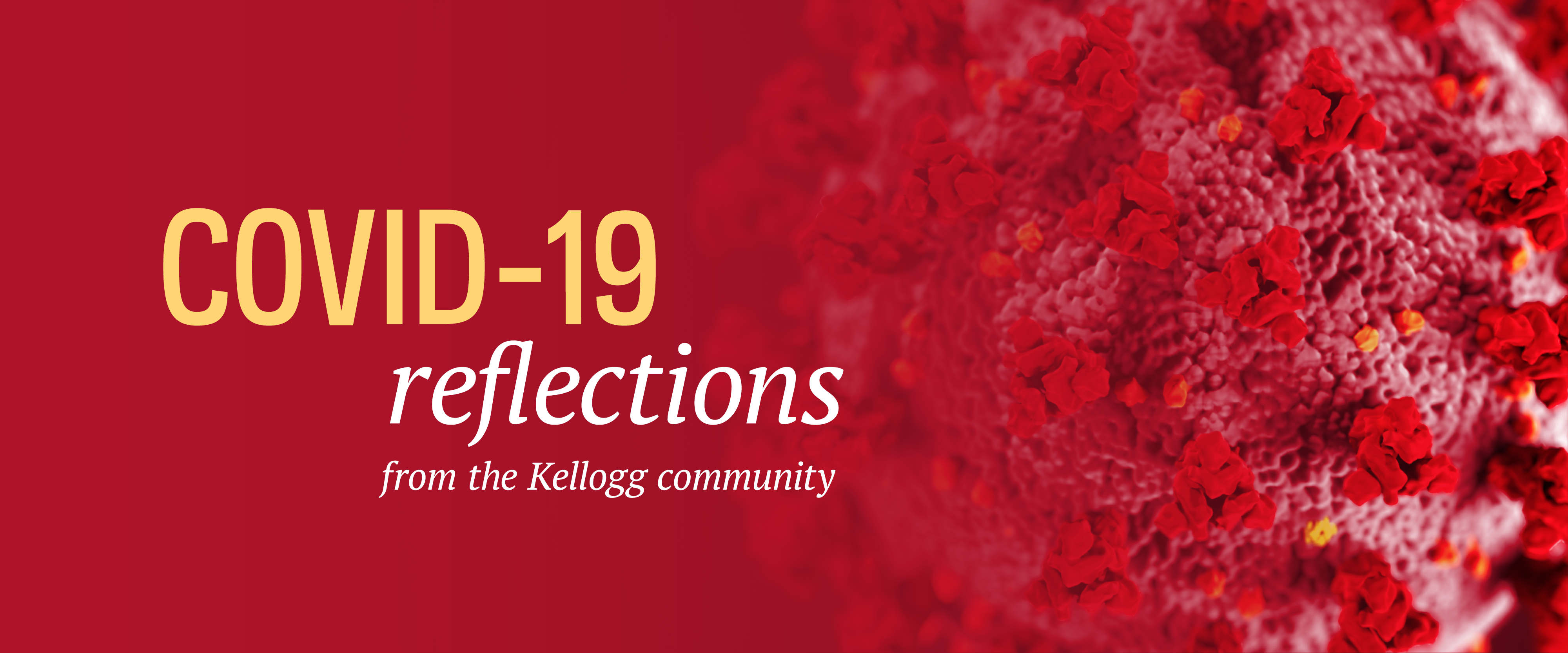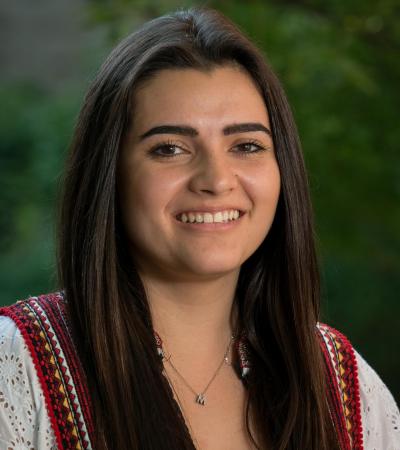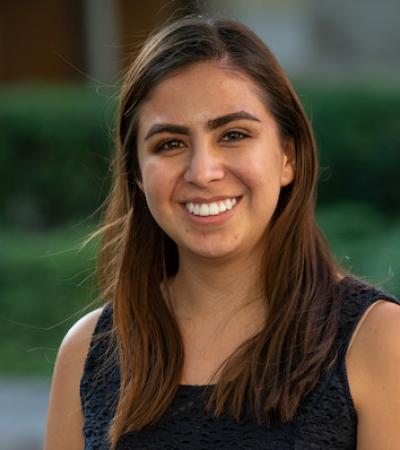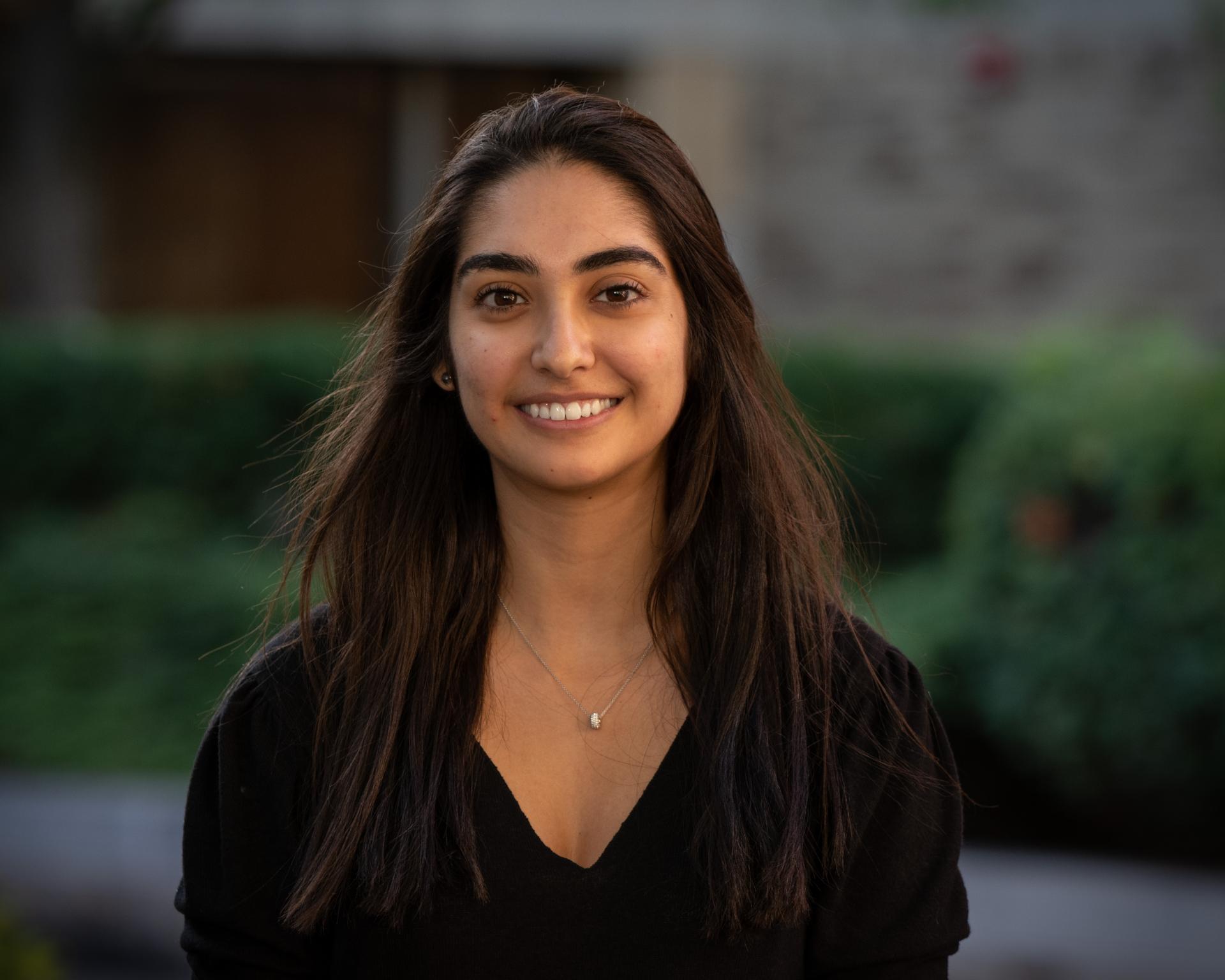
If you would like to share your reflection as well, please write to Holly Rivers (hrivers@nd.edu) for details.
 COVID Reflection - Letter to all
COVID Reflection - Letter to all
Reflection from Kellogg International Scholar Attina Zhang '21
April 5, 2020
I can’t remember the last time I saw a single news article written about China in a positive and encouraging tone. Somehow, the US media (and millions of people they have influenced) seem only able to see China as a conglomerate of bureaucracy, plots, darkness, oppression, hoaxes after hoaxes, and craziness. As a Chinese person myself, I have encountered enough hostility on traditional and social media that I found myself dodging around articles on China when reading news. Simply put, in order to not feel hurt and attacked, I am unintentionally shutting off all comments, knowing so little words of mercy, kindness, fairness, compassion, or love can be found. How did this come into being? I loved reading news stories and was always confident that by reading news from different sources, I can eventually piece together the truth from the potentially biased reports. That never happens in China’s case. Bloomberg, New York Times, Wall Street Journal, CNN, Fox… they are stabbing at my heart — just from different angles. More...
 Coronavirus in Venezuela
Coronavirus in Venezuela
Reflection from María Luisa Paúl '21, Kellogg International Scholar
By early March, reports about coronavirus cases in Venezuela began circulating through social networks. Doctors in private hospitals began warning citizens that the virus had already reached the country. As a result, the government addressed the worrisome rumors and set matters straight by following its usual modus operandi: persecuting journalists and imprisoning doctors. By early March, reports about coronavirus cases in Venezuela began circulating through social networks. Doctors in private hospitals began warning citizens that the virus had already reached the country. As a result, the government addressed the worrisome rumors and set matters straight by following its usual modus operandi: persecuting journalists and imprisoning doctors. After all, if a tree falls in a forest and no one is around to hear it, does it really make a sound?
In the case of coronavirus, it does. More...
 COVID-19 in Bolivia: We Lost The War, But Still Trying To Win The Battle
COVID-19 in Bolivia: We Lost The War, But Still Trying To Win The Battle
Reflection from Kellogg International Scholar Camila Antelo Iriarte '22
No matter the hour, across my window, I see a group of military soldiers outside. It has become a morning routine to stand there, coffee in hand, and read the forever-changing news to which I’ve become addicted to. Today, as I read government instructions forbidding burials and limiting funerals to only close family members, I cannot help but think about when my father passed away. He spent a few days in intensive care, and we were able to mourn him, give him a proper funeral, and choose when and how to continue with our lives as best as we could… and it was the hardest and most painful thing I’ve ever done. I cannot imagine the feeling of those being directly affected by COVID-19 and not only its consequences (as this part has already become universal). More...
Follow up on COVID-19 in Bolivia: A Small Fraction of The Struggle - September 16, 2020
Four months after schools moved to remote learning, on July 9th, the Minister of Education finally presented rules for online instruction, as the government continued with ongoing programs to train teachers and improve access to and quality of the internet. However, on the morning of Sunday August 2nd, the Minister of the Presidency announced the closure of the school year as of July 31st—four months earlier than usual. All students from all levels automatically passed. The government would continue to pay public schools teachers, and private schools could decide whether or not parents wanted to continue online instruction. No one saw this coming, especially not me. More...
 COVID-19 from a Mexican's perspective
COVID-19 from a Mexican's perspective
Reflection from Monica Turner '23, International Development Studies minor
As of yesterday, April 4th, the official count is that there are 1,890 confirmed cases, 634 recoveries, and 79 deaths in Mexico. The real number, however, is likely to be much bigger because my country lacks the resources to detect the virus and keep track of the cases. Like the rest of the world, thousands, if not millions, are being affected by this crisis. The totality of the trickle-down effects of COVID-19 is yet to be seen, but thousands of workers have lost their jobs or part of their wages. Government authorities have failed to impose strict measures to control the virus, and many have condemned our president, Andrés Manuel López Obrador (AMLO), for it. In his daily press briefings, he has encouraged hugging, blamed conservatives for purposely wanting our economy to fail, and claimed that we are ready to confront the crisis. The reality is much different. More...
COVID-19 in Botswana
Reflection from Oneile Gorata Baitlotli '21, International Development Studies minor
In early February, during one of my Political Science classes, my professor asked the class to go around the room and share its thoughts on COVID-19. When my turn to share came, I answered honestly that I am concerned about the Sub-Saharan African region should the virus spread across the world. The reason behind my deep concern was because the region does not have the same level of health care facilities and resources as western countries and so the spread of the virus could be fatal. I was particularly concerned about my country, Botswana, because it is among the countries that have the highest rates of HIV/AIDS prevalence in the World. From what I had read at the time, people with underlying medical conditions were at a higher risk of getting seriously ill if they get the virus. More...
 Dominican Republic: Coronavirus vs. The Elections
Dominican Republic: Coronavirus vs. The Elections
Reflection from Kellogg International Scholar Graciela Abinader ‘22
Facing the threats posed by the coronavirus pandemic is not easy, nor is it easy to conduct a general election – especially a free and fair one in an underdeveloped country. How about doing both simultaneously? The Dominican Republic is currently undergoing this challenge, with elections scheduled for July 5. The coronavirus pandemic was declared a national emergency on March 19. There are currently 16,531 active cases in the country, 9,266 recovered ones, and 488 deaths. Fortunately, our health system has not collapsed – yet, and there seems to be moderate control over the virus’s transmission rate compared to other countries in the region, such as Ecuador. Nonetheless, as the country comes close to holding general elections, the feasibility of doing so while still respecting the well-being of all Dominican citizens is in question. More...





